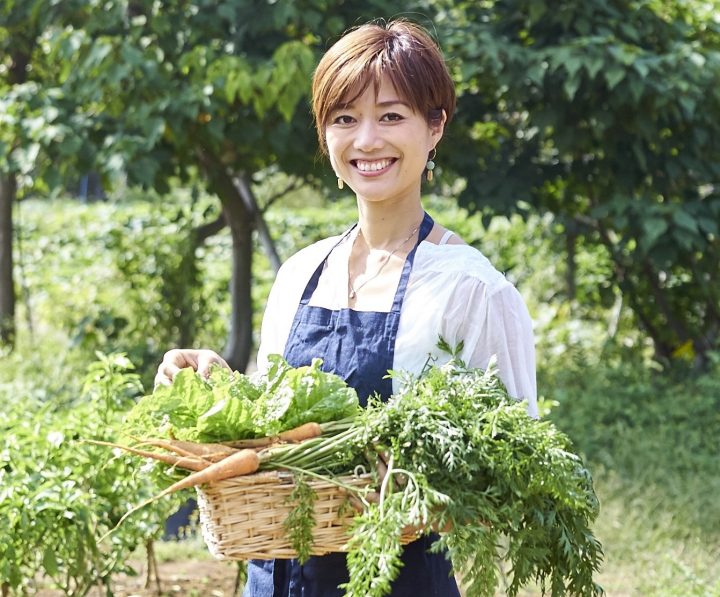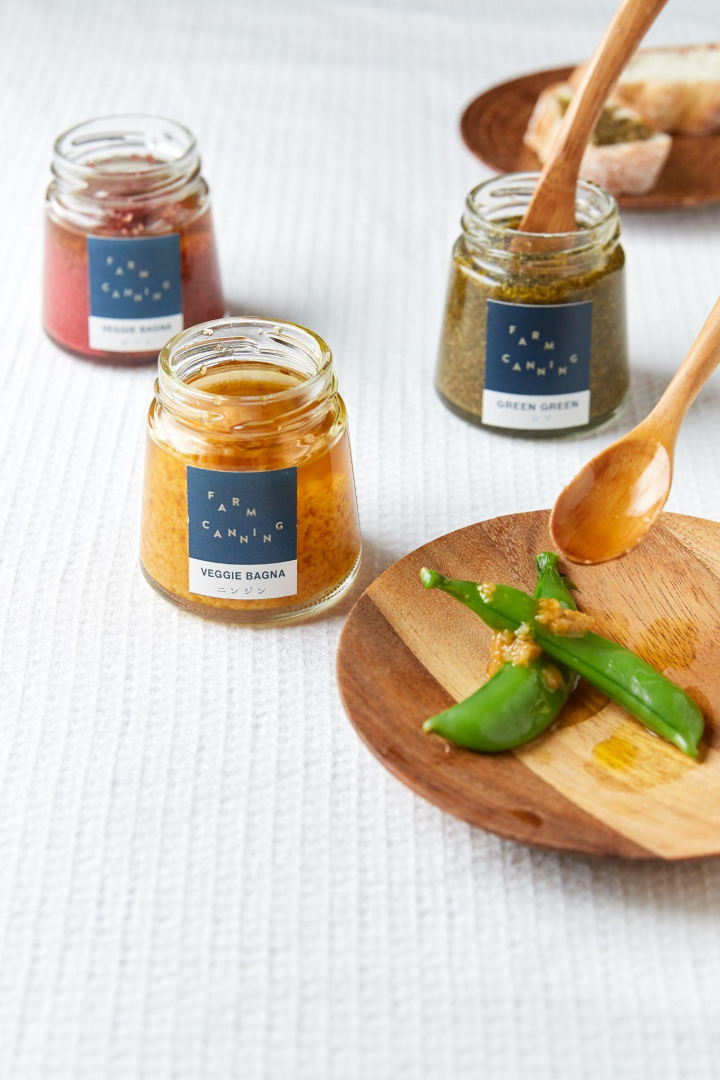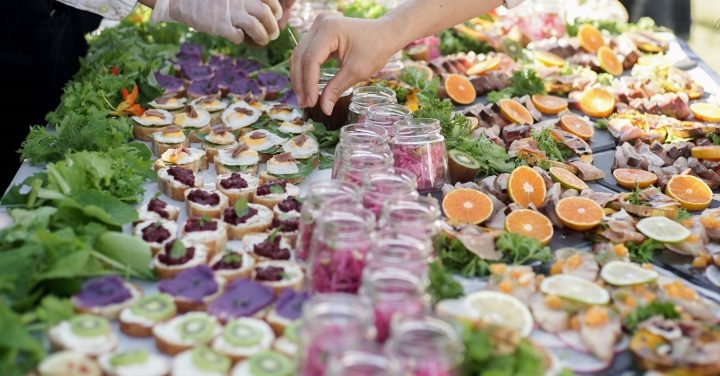Bottle your wasteful vegetables! FARM CANNING ・Chie Nishimura

FARM CANNING is a company based in Zushi City that manufactures and sells bottled products made with organic and non-standard vegetables, as well as catering services
. We spoke with Chie Nishimura, the company's representative, who is involved in recycling-based agriculture and non-standard vegetables, with the concept of "making the farm a part of everyday life."

Chie Nishimura, Representative of FARM CANNING
It all started with bottling the memories of the fields.
Nishimura originally had experience setting up and running an organic cafe in Tokyo. After giving birth to her second child, she wanted to eat locally produced and locally consumed vegetables, so she moved from Tokyo to Hayama Town in anticipation. However, when she actually moved there, she found it difficult to find local vegetables grown without pesticides.
One day, he met a farmer who cultivated crops without pesticides or chemical fertilizers. He learned about the difficulty and necessity of pesticide-free farming, as well as the beauty of life. At the same time, he learned that even with this, non-standard produce, or so-called "damaged products," often cannot be sold, despite the time and effort that went into growing them.

A cute carrot that is out of the ordinary
Is there anything I can do to help with this, to give back to farmers in some small way? With this thought in mind, I decided to take the plunge and start FARM CANNING by myself to try bottling non-standard vegetables.
"Canning" means to bottle something. I literally wanted to "bottle the memories of the fields and take them home!" (?) After making repeated trials at home, I began selling the bottled products at markets.
Products that are good for both the mind and body
"Food and health are closely related, so I want to spread the word about products that I think are good for the body," says Nishimura.
We often see jams and pickles as bottled products, but jams themselves are high in sugar and are popular with bread and sweets, and pickles are also popular to eat with bread or meat.
When developing products, Nishimura places importance on two things: first, "products that are good for both the mind and body." Second, "products that can be used as side dishes to eat with rice, which suits the bodies of Japanese people."

Just pour the flavored oil over vegetables or fish to make rice go down smoothly.
The prototype failed! His family complained!
Nishimura says that he went through a series of failures and successes before he finally created his signature product, Bagna Cauda sauce.
The pumpkin was a particularly big failure, as it began to ferment within a day and started to give off a strange smell, causing an uproar from the family. "It smells weird!" Pumpkins have a high level of resident bacteria, and he didn't know that it was necessary to stabilize the pH by adding vinegar or lemon to prevent the bacteria from becoming active, he reminisced about his failure at the time.

Make a sauce by making a paste out of a large amount of carrots at once.
Nishimura failed many times, and every time he ruined non-standard vegetables that he thought he had saved from being thrown away during the trial production stage, he felt powerless.
However, he has continued without giving up, and he says with confidence, "I can continue because the world needs me."
Our signature dish is Bagna Cauda Sauce

Bagna Cauda Sauce (beetroot, carrot), Genovese Sauce (komatsuna)
He has been developing various bottled products for four years, but his bagna cauda sauce made with shio koji has become a staple.
"Not only is it delicious, but it maintains its quality no matter who cooks it, it can be stored without fermenting like pumpkin (laughs), and because it doesn't use anchovies, it can be made using only plant-based ingredients," Nishimura said, and his expression was one of relief and joy.
In addition to the standard products, this store sells many seasonal limited edition Bagna Cauda sauces.
We are currently adding a new addition to our lineup: a cauliflower bagna cauda sauce, which is in season right now. It's sweet and delicious. It also pairs well with bitter vegetables, such as rape blossoms, which are becoming more and more available!
This yuzu miso can be enjoyed with konjac and daikon radish, as well as with yudofu and hotpot dishes . On cold days, Farm Canning's homemade miso is sure to warm you from the inside out.

Using colorful vegetables, we strive to express the beauty of nature, and actively incorporate non-standard fruits depending on the season.
Nishimura also runs a catering business called "Mottainai Catering," which uses non-standard vegetables. The business model is designed to minimize waste, such as paper plates, and also purchases vegetables only after receiving an order, so there are no unsold items.
At the Farm Club, you can learn about the cycle of nature through farm work with your friends, and think about the background of food.

Nishimura, who continues to learn with an inquisitive mind and respect for the connections between agriculture, the environment, food, and our health, says, "I want to convey the beauty of the cycle of life in a cheerful and fun way." He
continues,
"I hope people will take some time to think about local food, and really think about the background to that food."
For example, Kanagawa Prefecture has a history of suburban agriculture thriving after the war, and with both mountains and the sea, it is said to be an area where a variety of produce can be harvested, but you can wonder what agricultural products are currently produced in Kanagawa Prefecture, or what seafood has become inedible due to environmental changes. Or, you can have fun like a game and try buying and eating only products produced in Kanagawa Prefecture.

The vegetables that are harvested come in a variety of shapes.
"If each and every person becomes conscious of production and diet, they will also become more conscious of the environment and their health, and I'm sure things will change for the better little by little. The number of organic farmers will increase, while food waste will decrease, and I believe that the future in which this becomes the norm lies in each and every one of us," she answered with a smile.
FARM CANNING Official WebsiteClick hereOnline
ShopClick here
※You can purchase FARM CANNING bottled goods and Nishimura's books.
InstagramClick here



